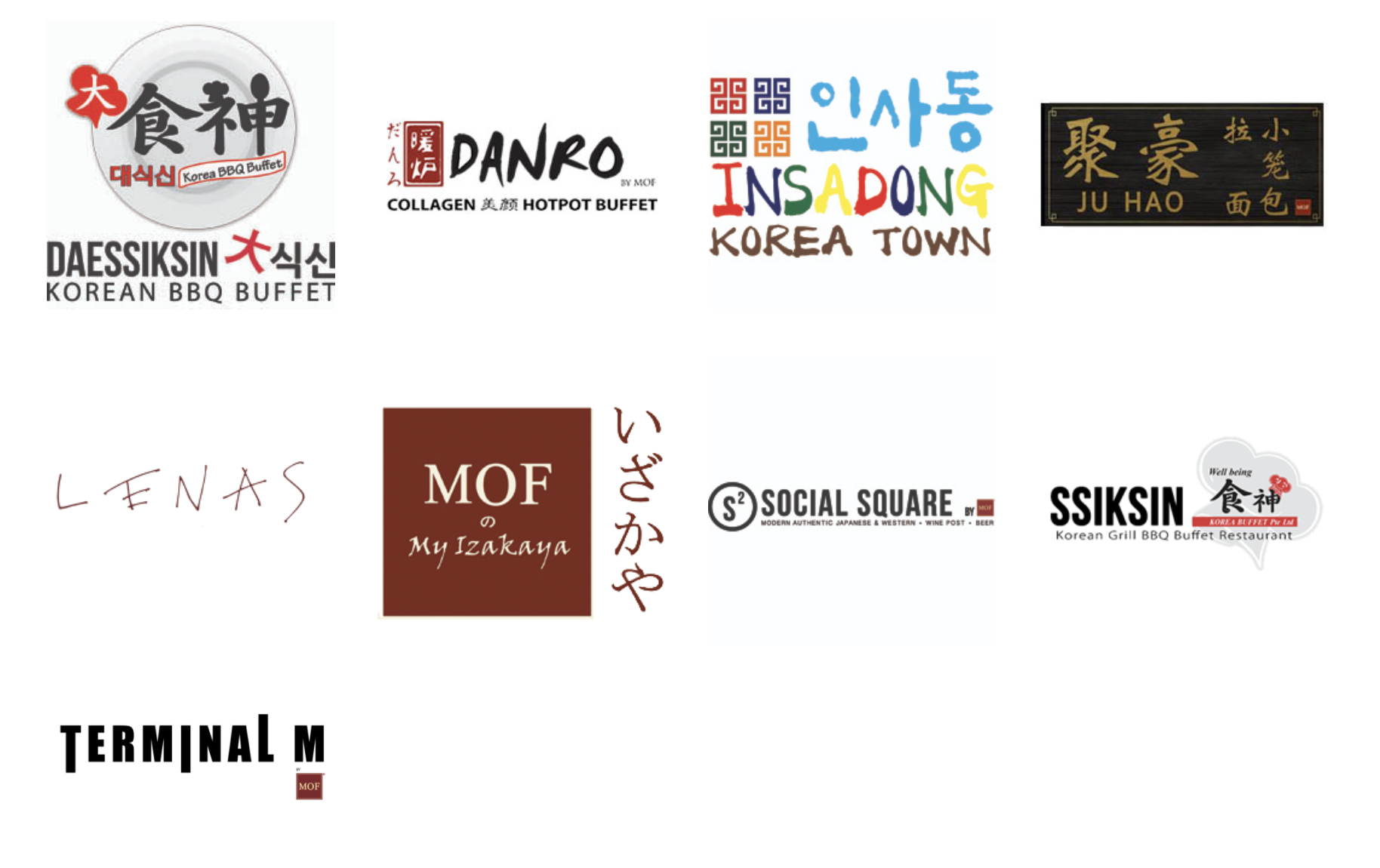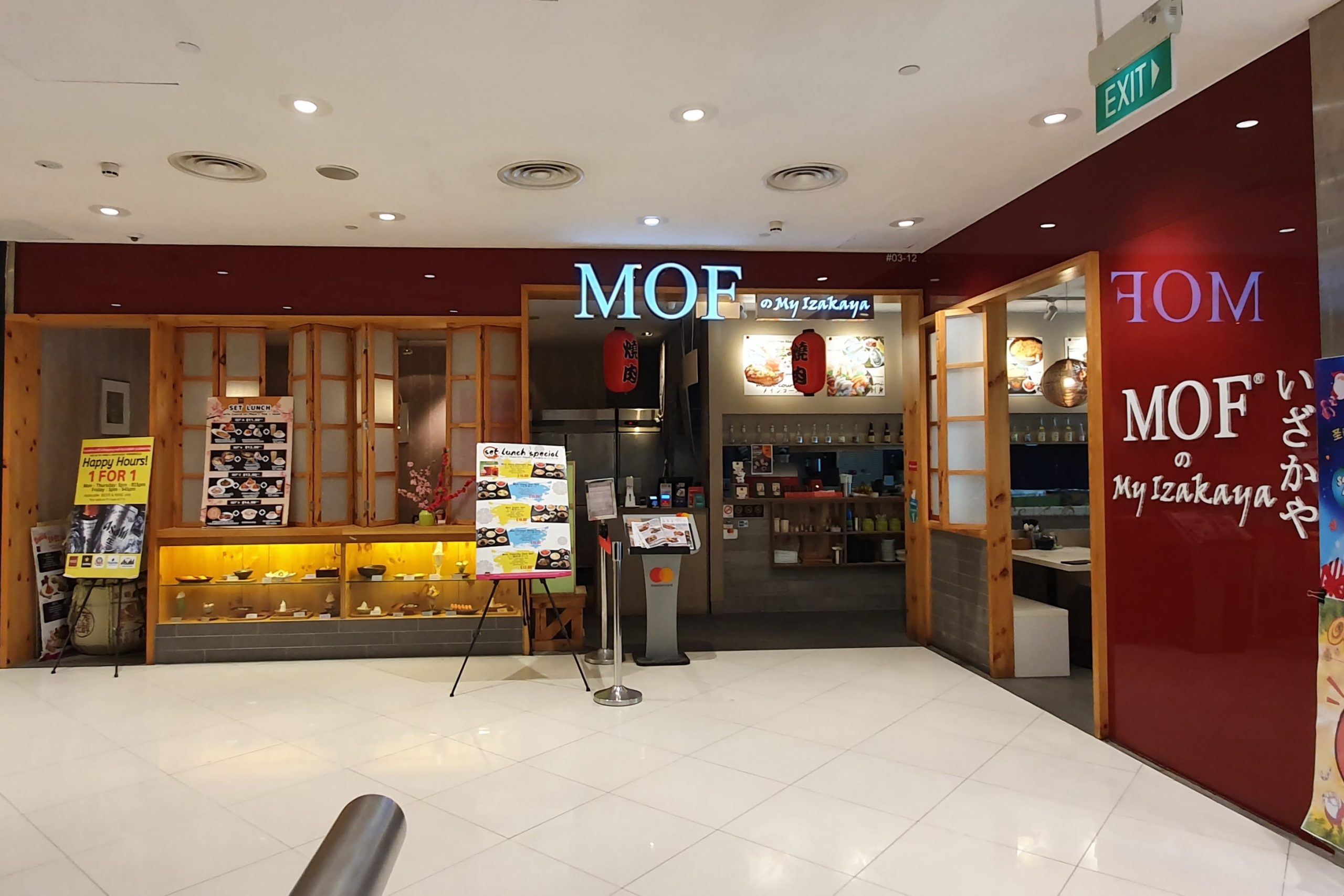On Tuesday (13 Oct), Ministry of Food (MOF) founder Lena Sim was declared bankrupt by the Singapore High Court for over a debt of approximately US$3.8 million (S$5.4 million).
Since MOF @ My Izakaya’s last outlet was forcibly shuttered in February 2020, perhaps you may need a refresher on what MOF is.
MOF is a restaurant chain that serves Western and Japanese food, and it has seven other restaurant brands under its company: DaeSsikSin Korean BBQ Buffet, Danro Hotpot Buffet, Insadong Korean Town, Ju Hao, Lenas, Social Square, SsikSin Korean Grill BBQ Restaurant and Terminal M.

At its height, MOF owned around 80 restaurants across the island.
Alas, when the restaurant chain was besieged by legal battles and the COVID-19 pandemic at the same time, it ultimately collapsed.
So, how did it happen?
The First Domino
Back in early Dec 2016, Ms Sim acted as a personal guarantor for a US$5.5 million loan to Blue-link Properties Offshore Limited (BPOL), which was owned by her life partner Ting Choon Meng.
BPOL was brought into the British Virgin Islands on 8 Feb 2013, and Mr Ting was BPOL’s sole director and shareholder at all material times. He also acted as MOF’s director between 20 Jul 2016 and 26 March 2018.

For the loan agreement, Ms Sim pledged 77.5% of her shares in MOF to creditor Star Sino Developments, while the remaining 22.5% were owned by Greenpeak Investments.
It was also stated in the loan agreement that BPOL was permitted to only use the loan to buy shares in MOF from Greenpeak, or to invest it as expansion capital for MOF.
Later on, BPOL did purchase the MOF shares from Greenpeak, then it was transferred to Ms Sim in 2017, one month before she got sued.
What was the US$5.5 million loan for, you might be asking?
Well, Ms Sim was going to buy a Korean restaurant chain with that money.
But she did not complete the deal, and she only paid $700,000.
Hence, she was sued in 2017 for an outstanding payment of $4.8 million by the four shareholders of the Korean restaurant chain— Lee Je-young, Ms Soh Sow Hoon, Huh Suk Kyung and Lee Pil Young.
The Failed Business Deal
Although Ms Sim agreed to purchase the Korean restaurant chain, her real intention was to package it with other F&B brands under MOF and resell to a Thai conglomerate.
Purportedly, she also told the four shareholders that she would only buy those restaurants if the deal with the Thai conglomerate succeeded in 2017.
At that time, said Thai conglomerate was interested in acquiring MOF and hired an accounting firm to go through its business records.
However, the deal went sour so Ms Sim did not want to, nor did she have the capital, to buy the Korean restaurant chain.
To add insult to injury, she couldn’t repay the loan either.
After Ms Sim was sued for the first time, she acknowledged the debt and entered several repayment agreements with the creditor, Star Sino.
Between 2017 and 2021, she was served a total of four statutory demands—which is a notice sent to a debtor that states the amount of debt as of the date of the demand—and she paid some of the debt back.
As of 20 April 2021, the outstanding amount was US$3.5 million with interest chargeable until the full repayment of the debt.
The Mareva Injunction
Since there was an arbitration clause included in the contract between Ms Sim and the Korean restaurant, the legal dispute was not litigated in court at first.
In legalese, an arbitration is an alternative dispute solution whereby parties agree to submit their dispute to a neutral tribunal (the arbitrators) who will make a binding decision about the dispute. A third party essentially gets involved to clear up the contractual disputes.
The advantage of an arbitration is that it’s cheaper, and it’s also not public, unlike a court hearing.
Ms Sim’s reluctance to pay the outstanding was worrisome, so the shareholders kept a close eye on her situation.
When their lawyers found out that Ms Sim had made her elderly illiterate mother into the director of her 20 companies and put up her Wilkinson Road bungalow for sale, they rang the alarm bells.
Immediately, they filed a Mareva injunction, so as to prevent Ms Sim from dissipating her assets, aka removing or disposing out of the jurisdiction any of the assets within the jurisdiction.
To make a simpler comparison, imagine that Sigma owns Gamma a basket of apples. There were originally 10 apples in the basket, but Sigma takes out 6 apples from the basket and puts it in a box.
There are 4 apples left in the basket so it’s technically still “a basket of apples”, just like what Sigma and Gemma have agreed upon.
But because their agreement explicitly states “a basket of apples”, Gemma can only claim the apples from the basket but not from the box, even though Gemma knows that the apples originally came from the basket.
The Mareva injunction was served to freeze Ms Sim’s assets so she won’t “flee” with her assets to another country.
Want an example of someone fleeing the country with countless debts? Watch this to the end:
When the Mareva injunction came down to Ms Sim in Feb 2020, the bank froze her accounts.
Ms Sim claimed that she could not make payments to her food suppliers, who in turn stopped delivering ingredients to her restaurants.
In the same vein, she could not pay the rent for her restaurants too, so her restaurants were repossessed by the malls.
The last MOF @ My Izakaya outlet at Lot One, Choa Chu Kang, was one of the restaurants that was repossessed by CapitaLand.

Back when, Ms Sim had complained that the banks overreacted when they heard about the injunctions as they even froze her personal accounts, which is allegedly not included in the injunction.
The injunction is supposed to block her from disposing her assets, not disrupt her daily life and business operations, said Ms Sim.
She added that the court order had caused a “ripple effect” as she failed to pay the salaries of her 400-member strong staff. The Ministry of Manpower later impounded her passport after questioning her for the derelict of her employment obligations.
COVID-19, The F&B Killer
After the deal with the Thai conglomerate fell through, MOF had to close down as many as 40 outlets in 2019.
Ms Sim stated that her businesses needed a “major revamp” as she realised that the table-service concept was no longer viable in Singapore with the manpower shortages.
Reportedly, after shutting down many restaurants, her company was operationally profitable by the last quarter of 2019.
Note: “operationally profitable” means that there is a positive income from the core operations of a business, excluding any debt or tax-related issues.
Her statement about “operational profit” is kind of questionable in hindsight though, as the number of restaurants under MOF had been whittled down to 26 by March 2020.
The injunction that came down within this transition period did not help matters.
Then, the first wave of the coronavirus hit Singapore hard, and dining restrictions were imposed.
Please remember that during the initial April 2020 circuit breaker, citizens were not allowed to dine in the restaurants at all.
It was only months later that people could dine in twos, then in groups of five, but malls could just shut down sporadically for two weeks if an infected happened to be in the vicinity.
Sales at Ms Sim’s restaurants dropped by 80% to 90%.
COVID-19 was the last straw that broke the camel’s back.
Ms Sim could not even recoup her losses through her core business.
Join our Telegram channel for more entertaining and informative articles at https://t.me/goodyfeedsg or download the Goody Feed app here: https://goodyfeed.com/app/
The Second Loan From A Good Samaritan
In 2019, Ms Sim was also offered an interest-free loan of $200,000 by Chua Ngak Hwee, a co-founder of the medical device company Healthstats.
(The other founder of Healthstats is Mr Ting.)
Of course, he had given the loan with the expectation that it would be repaid.
That did not happen.
Hence, Mr Chua filed an application to wind up MOF in January 2021.
In business, winding up is the process of collecting and liquidating a company’s assets and selling them in order to pay off the debts.
The application was granted on 9 April.
Mr Tam Chee Chong, MOF’s appointed liquidator, called for all of MOF’s restaurants to be closed.
The Second Bankruptcy Application
As previously mentioned, Ms Sim was served four statutory demands between 2017 and 2021.
However, she defaulted her payment in 2021, so Star Sino filed a second bankruptcy application against Ms Sim on 20 August 2021.
In the court documents, Star Sino’s lawyers from Fullerton Law Chambers LLC said that its client did not rely on Ms Sim’s shares in MOF for recovery of the debt as “the shares did not have any value”.
Talk about third-degree burns, yeesh, mentioning both the unpaid debt and her failing business in one sentence.
To Ms Sim’s credit, she did try to postpone her bankruptcy by making an application to the court to set aside the fourth statutory demand, on the basis that the loan agreement was a sham and contested the enforceability of the loan agreement.
In the application, Ms Sim claimed that she was not indebted to Star Sino at all because the entire transaction was a moneylending transaction and the documents created were a sham to try to avoid the provisions of the Moneylenders Act.
The Moneylenders Act basically details the rights and protections accorded to the borrowers and the moneylenders by describing the parameters of how moneylenders must collect, use, and disclose the information and data of the borrowers.
Under this framework, a debtor can negotiate their loan terms with the moneylender if they feel like they can no longer pay the loan, and the moneylenders can find other legal ways to help the debtor pay their loans.
On the flip side, it also gives moneylenders the legal right to seize the borrower’s property and/or assets.
Alas, her application was dismissed by the Assistant Registrar of the Supreme Court, then dismissed by a High Court judge again when she appealed the decision.
Thus, Ms Sim was officially declared bankrupt over a debt of US$3.5 million.
Other Troubles
Apart from her financial woes, Ms Sim is facing charges from Inland Revenue Authority of Singapore (IRAS) for failing to tell the authority the full information on two of her companies, Korean Buffet and Xlb 1.
Yes, you heard that right, she still has companies up and running.
Additionally, some DaeSsikSin Korean BBQ Buffet outlets are still open, though they are now under a different entity called Master Kitchen Concepts, reported The Straits Times.
According to the Accounting and Corporate Regulatory Authority records, Master Kitchen Concepts was established in December 2020, and it is owned by Ting Choon Meng.
Apparently, some of the restaurants were salvaged by passing them on to her life partner.
Read Also:
- Uncle Raymond is Now in a New Shopee Ad But Blue Shirt Last Warning Didn’t Appear
- Police Investigating 9 Men Who Protested Over Alleged Unpaid Salaries & Blocked the Entrance of a Building
- LTA Removes Island Kerb After Vehicles Kept on Mounting it While Making U-Turn
- Bentley Driver in Red Swastika School Saga Sentenced to 8 Weeks’ Jail
- Terra Founder Do Kwon Appeared in First Public Interview & Claimed His Charges Are ‘Politically Motivated’
Featured Image: Facebook (WomenTalk)




